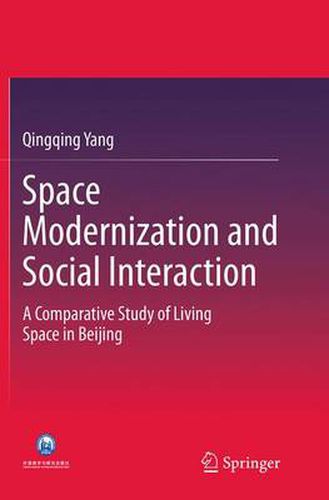Readings Newsletter
Become a Readings Member to make your shopping experience even easier.
Sign in or sign up for free!
You’re not far away from qualifying for FREE standard shipping within Australia
You’ve qualified for FREE standard shipping within Australia
The cart is loading…






This title is printed to order. This book may have been self-published. If so, we cannot guarantee the quality of the content. In the main most books will have gone through the editing process however some may not. We therefore suggest that you be aware of this before ordering this book. If in doubt check either the author or publisher’s details as we are unable to accept any returns unless they are faulty. Please contact us if you have any questions.
This book concerns the Beijing Hutong and changing perceptions of space, of social relations and of self, as processes of urban redevelopment remove Hutong dwellers from their traditional homes to new high-rise apartments. It addresses questions of how space is humanly built and transformed, classified and differentiated, and most importantly how space is perceived and experienced. This study elaborates and expands Lefebvre’s trialectic of space on a theoretical level. The ethnography presented is a conversation with Tim Ingold’s argument about empty space . This research employs the ethnographic technique of participant-observation to secure a finely textured, detailed and micro-social account of local experience. Then, these micro-social insights are contextualized within macro-social structures of Chinese modernism by speaking to geographical concerns, orientalism and history.
$9.00 standard shipping within Australia
FREE standard shipping within Australia for orders over $100.00
Express & International shipping calculated at checkout
This title is printed to order. This book may have been self-published. If so, we cannot guarantee the quality of the content. In the main most books will have gone through the editing process however some may not. We therefore suggest that you be aware of this before ordering this book. If in doubt check either the author or publisher’s details as we are unable to accept any returns unless they are faulty. Please contact us if you have any questions.
This book concerns the Beijing Hutong and changing perceptions of space, of social relations and of self, as processes of urban redevelopment remove Hutong dwellers from their traditional homes to new high-rise apartments. It addresses questions of how space is humanly built and transformed, classified and differentiated, and most importantly how space is perceived and experienced. This study elaborates and expands Lefebvre’s trialectic of space on a theoretical level. The ethnography presented is a conversation with Tim Ingold’s argument about empty space . This research employs the ethnographic technique of participant-observation to secure a finely textured, detailed and micro-social account of local experience. Then, these micro-social insights are contextualized within macro-social structures of Chinese modernism by speaking to geographical concerns, orientalism and history.